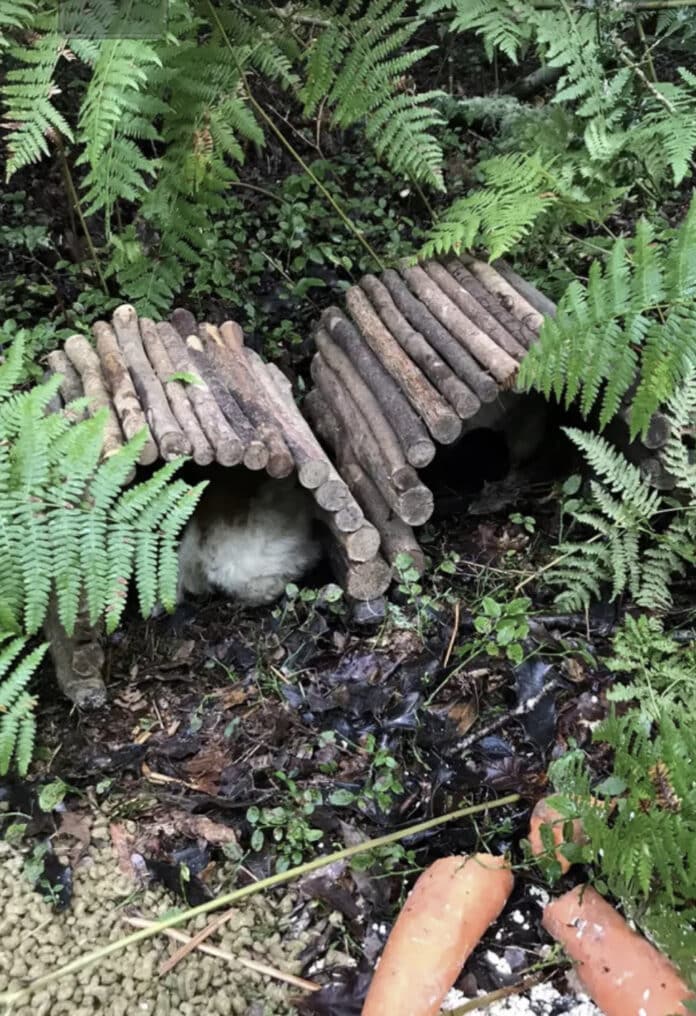
The RSPCA is caring for many more guinea pigs who need a fresh start in life
Eleven guinea pigs who were cruelly abandoned and left to fend for themselves in the New Forest are set to be rehomed.
The four adults and seven babies were let loose next to two wooden arches in gorse bushes at a carpark in the forest close to the Wiltshire/Hampshire border.
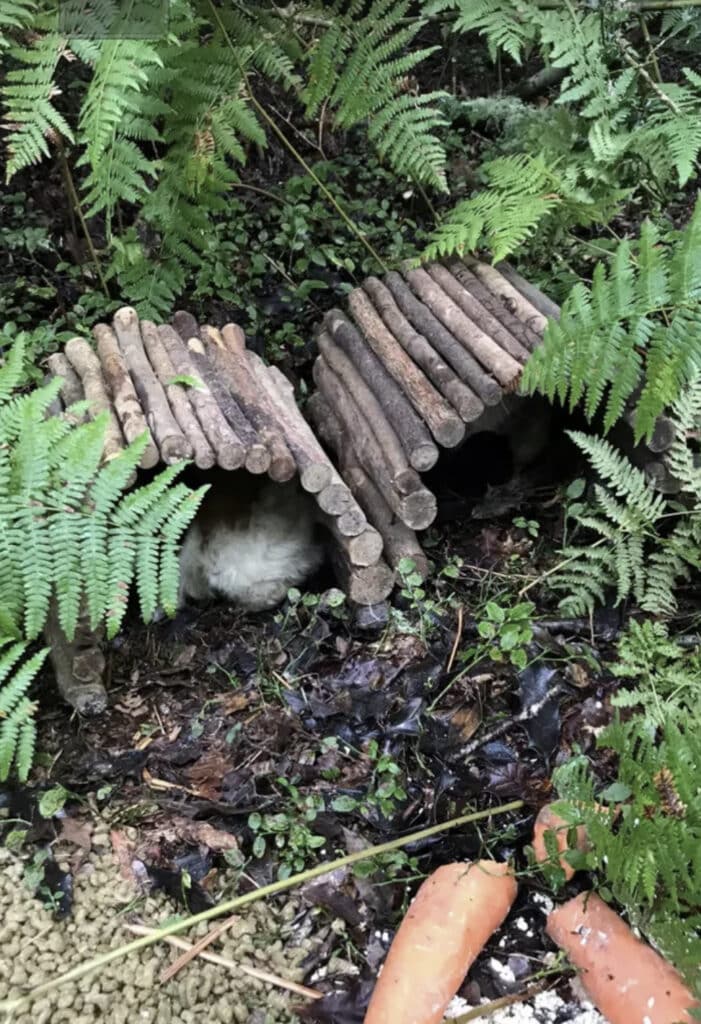
They were at risk of being preyed upon, but were fortunately found quickly by a client of dog walker Julie King, who took them home and placed them in a large run in her garage (see picture below) before she contacted the RSPCA.
The guinea pigs, despite being wet after the ordeal – were in good health. After being given a thorough welfare check, they are now, with the guidance of the animal charity, being found new homes by the dog walker, who will continue to care for them in the meantime.
It is the latest in a spate of guinea pig abandonments, which the RSPCA is highlighting in Guinea Pig Awareness Week (GPAW) (September 25-29), as its animal centres have been left packed with unwanted small animals. Up to August the numbers of guinea pigs the charity has taken in has risen by 37 percent compared to the same period last year.
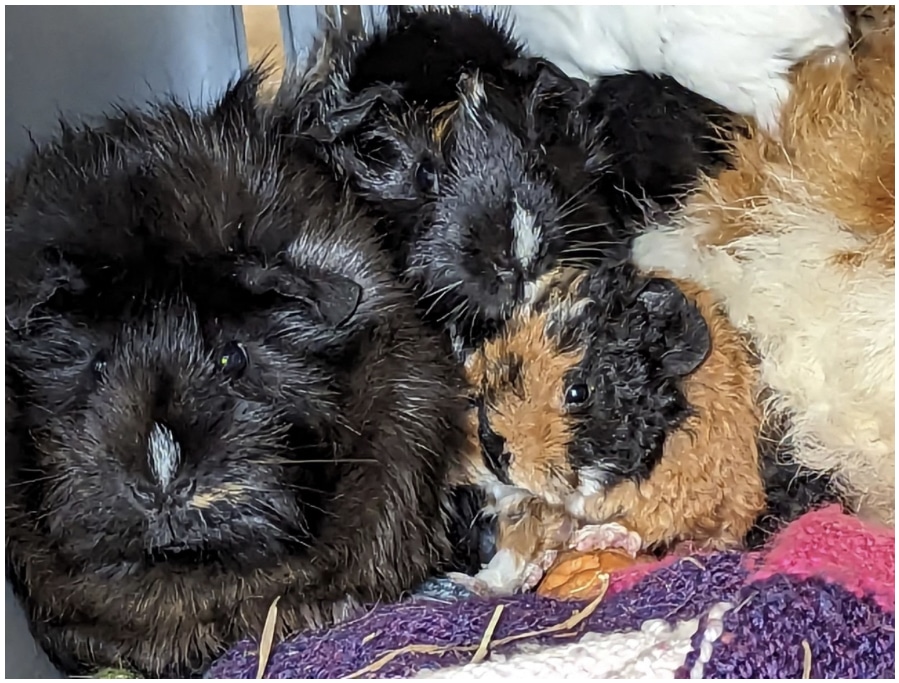
The guinea pigs were abandoned with just a small amount of food at around 4pm on September 21, 50 yards from Bramshaw Wood car park, near Nomansland.
RSPCA inspector Graham Hammond, who attended the incident, said: “The person who abandoned these vulnerable animals left them under two open wooden arches with only a pile of pellets and some carrots. It was a completely reckless and callous act.
“Nearby, there would have been dogs off-lead and foxes too, so they would have stood no chance of fending for themselves had they not been picked up.
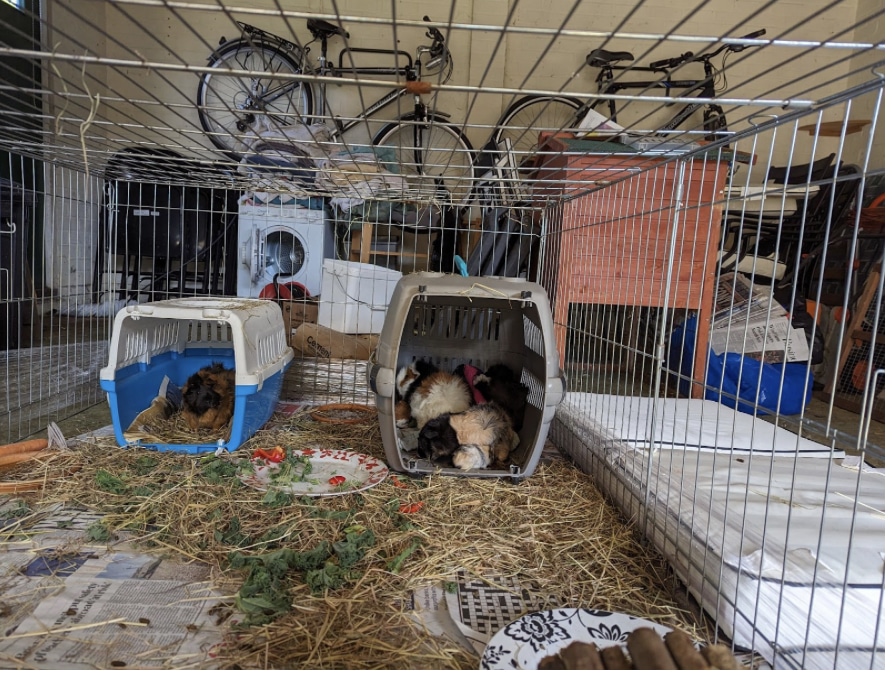
“This is nothing new unfortunately and we saw similar abandonments in pre-covid times, but now it seems the cost of living is having a big impact and incidents like this are all too common.
“We suspect this incident may be the result of accidental breeding, which has gotten out of hand and the owners have quickly found they have a large number of guinea pigs. There are two litters and one of the mothers may be pregnant again.
“Sexing guinea pigs is so important to make sure they don’t multiply. Pet shops should be correctly sexing young guinea pigs, selling same-sex pairs or advising owners about the importance of speaking to their vets and organising timely neutering, but they often don’t do that and we get to this stage.
“Thankfully, these guinea pigs were discovered quickly and rescued by a local dog walker, who is only too happy to rehome them, with our guidance. We have given her advice on the welfare issues that their new owners must consider, such as providing appropriate-sized accommodation and the correct feeding regime.”
The RSPCA is now working very closely with the dog walker who collected the guinea pigs to find them a suitable home.
Julie, who lives near to the woods, said: “When one of my dog walking customers called me I went immediately to the location with a couple of cat baskets to collect the guinea pigs. It was distressing to see as some of the babies were only a day or two old, so anything could have happened to them.
“One of the mothers is just two to three months old and she already has two babies. I have a number of people who are interested in taking them and with the advice I have received from the RSPCA I will make sure they are adopted by owners who are going to meet their welfare needs. When they are rehomed, I will also direct other potential adopters of guinea pigs towards the RSPCA and their advice.”
Pet owners can find expert guidance on how to look after guinea pigs in a downloadable digital pack that is made available as part of Guinea Pig Awareness Week.
They are advised to check their guinea pigs’ health weekly by examining their teeth, ears, nose, eyes, body shape and feet. A varied diet of fresh hay, pellets, fresh greens and water should be provided, as well as large enough accommodation, ideally an enclosure attached to a larger run.
Dr Jane Tyson, the RSPCA’s small animals welfare expert, added: “People don’t always correctly sex guinea pigs so a pair can quickly spiral into double figures and beyond. Their owners need to make sure the general welfare needs of guinea pigs are catered for, especially making sure they have the right environment to live in and that they have plenty of space to exercise and explore as well as having plenty of toys to help prevent boredom.”

Owners should also learn how to handle their guinea pigs and understand their behaviours, so they can spot signs of stress in their pets. Guinea pigs should not live alone, but it is best to take on single-sex groups or pairs, or a male with one or more females; males will need neutering and it is less common to neuter females as the surgery is more complex. There is also information and advice on the RSPCA website, including a downloadable booklet on guinea pig care.
Among the guinea pigs the RSPCA is seeking homes for in the southern region are: Roy and Pete (left), who are at Godshill Animal Centre in the Isle of Wight.
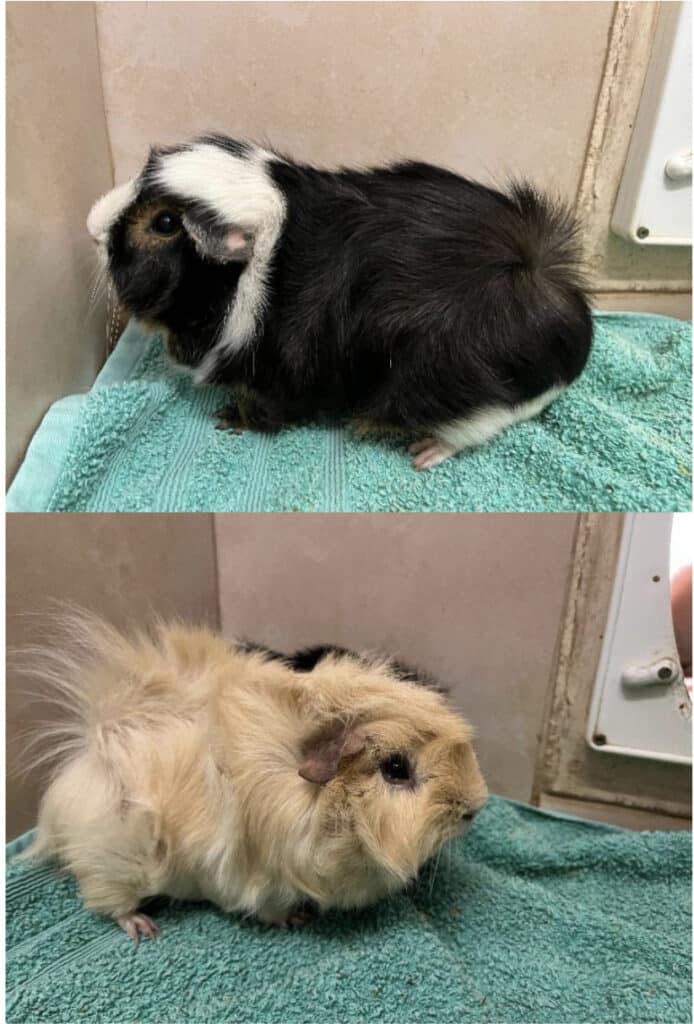
Both guinea pigs are around two years old and are looking for their forever home together. Roy loves a comfy pillow to lay on and a nice bowl of forage to munch on, while Pete enjoys tackling a nice cardboard box. They are both neutered and microchipped and any interested adopters should email [email protected]
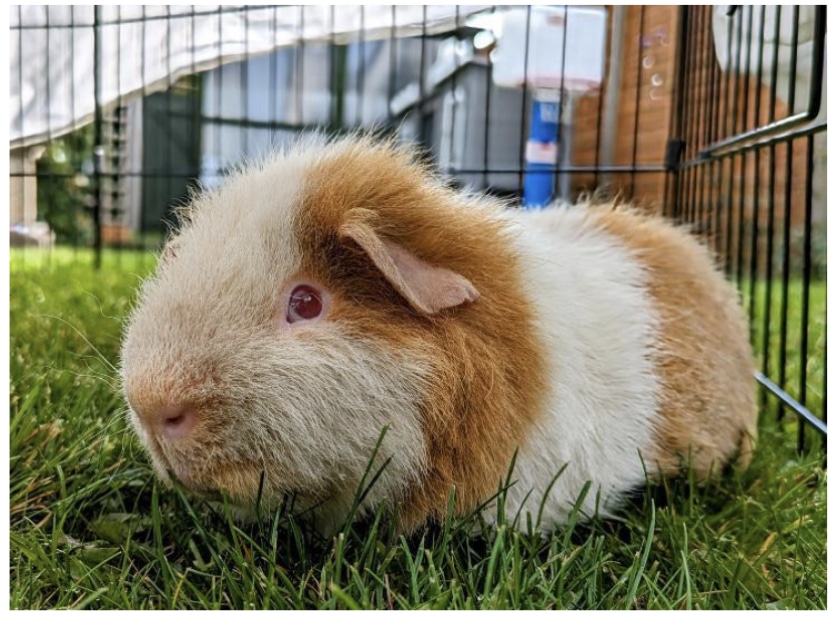
Nutty, who is being cared for by the RSPCA Wimbledon, Wandsworth and Sutton Branch, endured a bad start in life as he was rescued from a large multi-animal home where his needs were not met. He is timid and needs to find a home where he can be shown that life really isn’t that scary. He would thrive in an indoor, quiet, adult-only home with a future girlfriend to bond with. He has recently been neutered, but will not be able to mix with females until after November 6. Anyone interested in adopting can complete an onlineapplication form.
There are also plenty of other guinea pigs being cared for by the RSPCA and potential adopters can search for them here.
If you would like your interests… published, submit via https://dorseteye.com/submit-a-report/
Join us in helping to bring reality and decency back by SUBSCRIBING to our Youtube channel: https://www.youtube.com/channel/UCQ1Ll1ylCg8U19AhNl-NoTg
and SUPPORTING US where you can: Award Winning Independent Citizen Media Needs Your Help. PLEASE SUPPORT US FOR JUST £2 A MONTH https://dorseteye.com/donate/











